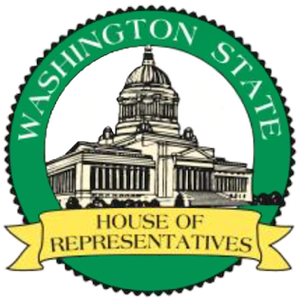The Washington State House Appropriations Committee (WA House APP) considers the operating budget bill and related legislation, budget processes, and fiscal issues such as pension policy and compensation. The committee also considers bills with operating budget fiscal impacts.
Public Hearings
- HB 1131 - "Allowing residential marijuana agriculture."
- HB 1738 - "Relieving burdens on small businesses by updating the tax return filing thresholds to reflect inflation."
- HB 2277 - "Concerning youth solitary confinement."
- HB 2310 - "Reducing emissions from vehicles associated with on-demand transportation services."
- HB 2318 - "Advancing criminal investigatory practices."
- HB 2456 - "Concerning working connections child care eligibility."
- HB 2469 - "Concerning small works rosters."
- HB 2475 - "Concerning the underground storage tank reinsurance program."
- HB 2763 - "Concerning interest arbitration for department of corrections employees." (If measure is referred to committee.)
- HB 2905 - "Increasing outreach and engagement with access to baby and child dentistry programs."
Executive Sessions
- HB 2264 - "Increasing the cap on accrued vacation leave."
- HB 2304 - "Concerning shared leave and industrial insurance benefits."
- HB 2421 - "Concerning state reimbursement of election costs."
- HB 2809 - "Regarding essential needs and housing support eligibility."
